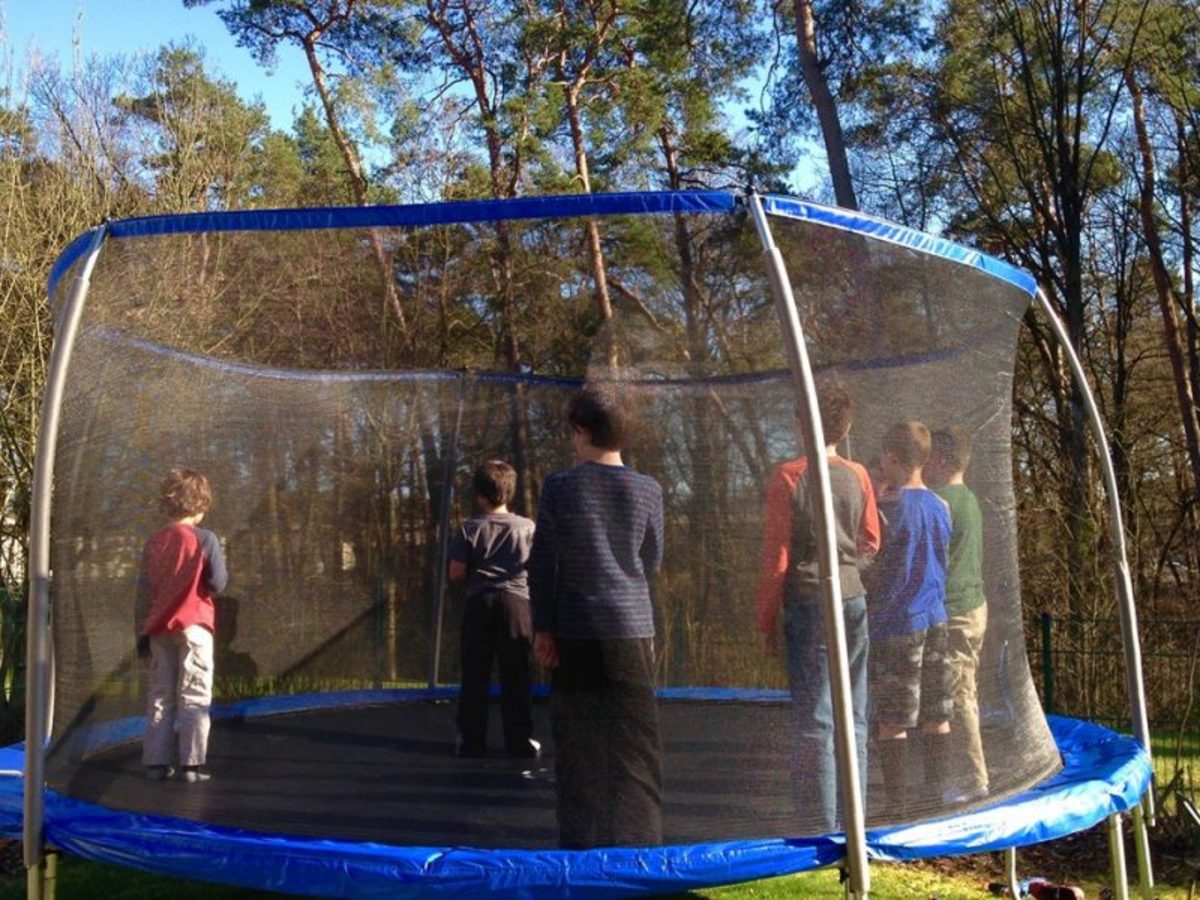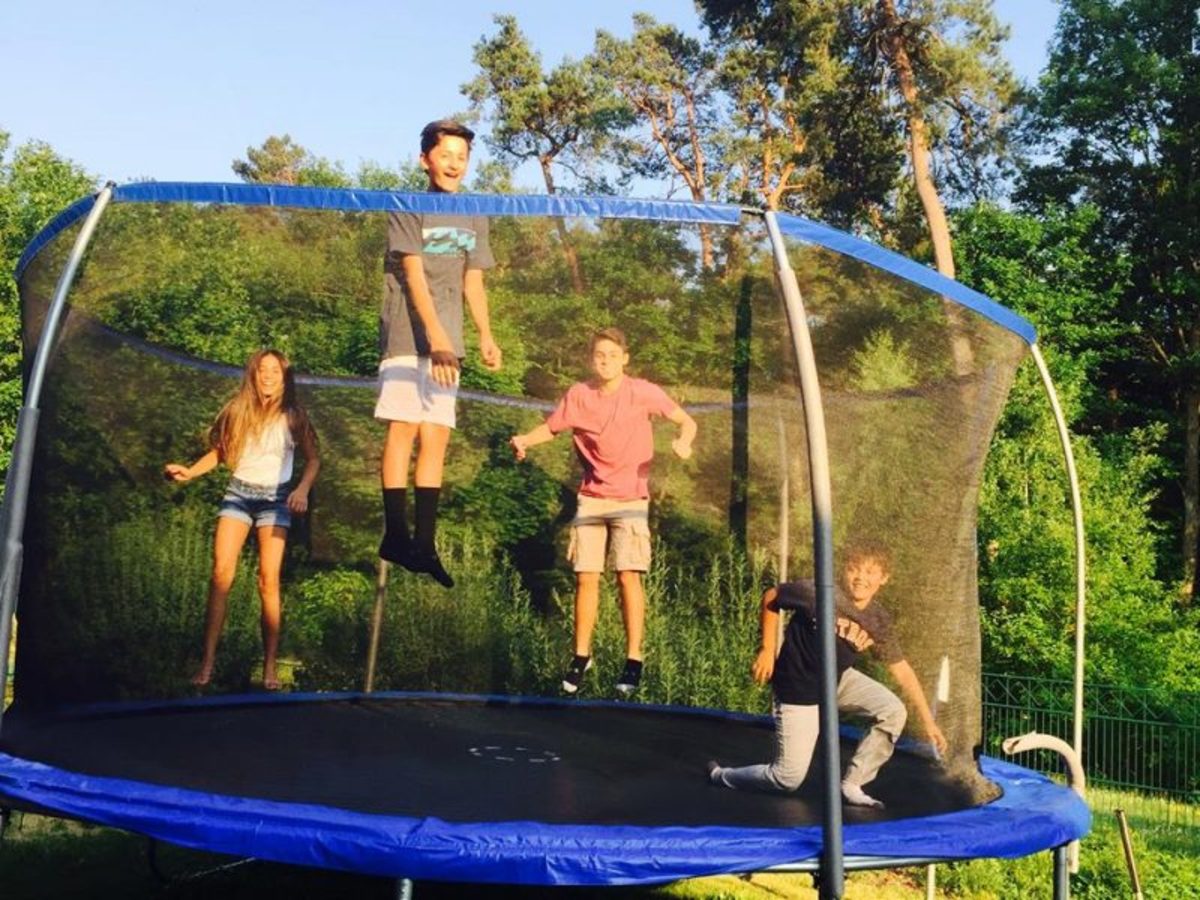Tania Duenas Sweeney grabbed her camera and snapped a picture of her son and his friends, who’d stopped jumping on the trampoline suddenly.
Sweeney, a military mom stationed in Germany at Ramstein Air Base, posted the picture on Facebook with an explanation. At 5 o’clock Monday through Friday, both the American and German national anthems play, which is what prompted the boys to stop playing.

“I love that these boys stop whatever they are doing and show their respect to our current country and the good ole USA!” Sweeney wrote. “We love this neighborhood.”
“If you are outside, you must stop what you are doing and face the direction of the anthems or a visible flag. Everything stops on base — adults, kids, all vehicles will turn on hazards and stop traffic to show respect,” Sweeney told the Independent Journal Review.
She stated that she loved that her kids and the others living on base were learning the importance of respect at such a young age.

“I love that our boys know now and do it automatically. I was doing dishes in the house and looked out the window to see them at attention. It warmed my heart,” she said.
She explained that the habit is instilled in the boys in various ways.

“My son has baseball practice that starts at 5 pm on Tuesday and Thursday on base. Coaches ask kids to get there at 4:45, because of the anthem,” she said, adding that practice stops and it’s “all hats off” when the anthem starts.
“These military kids sacrifice so much to support their military parent and it becomes part of who they are. They endure extended periods of time without their military parent and mature a little more quickly than the average kid,” she added. “They feel pride in their country, and it is amplified living on base and especially in an overseas location. I am so proud of every boy in that picture, especially because no one made those kids show respect, they did it because they truly respect the USA.”

She stated that military kids sacrifice so much, and part of the reason she posted the photo was to get them a little recognition, which they often lack.

